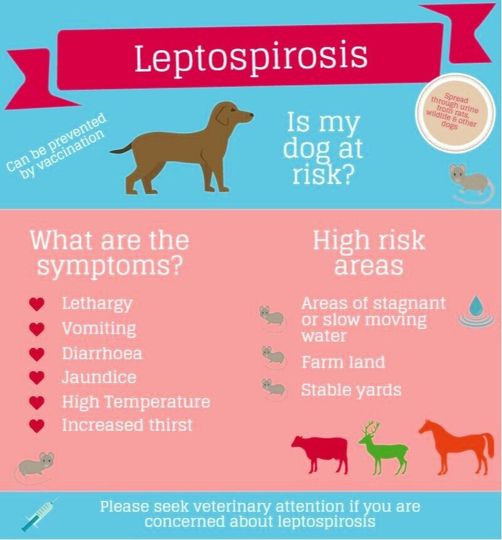
Leptospirosis is a disease caused by infection with Leptospira bacteria. These bacteria can be found worldwide in soil and water. There are many strains of Leptospira bacteria that can cause disease. Leptospirosis is a zoonotic disease, which means it can be spread from animals to people. Infection in people can cause flu-like symptoms and can cause liver or kidney disease. In the United States, most cases of human leptospirosis result from recreational activities involving water. Infection resulting from contact with an infected pet is much less common, but it is possible. Signs of leptospirosis may include fever, shivering, muscle tenderness, reluctance to move, increased thirst, changes in the frequency or amount of urination, dehydration, vomiting, diarrhea, loss of appetite, lethargy, jaundice (yellowing of the skin and mucous membranes), or painful inflammation within the eyes.









